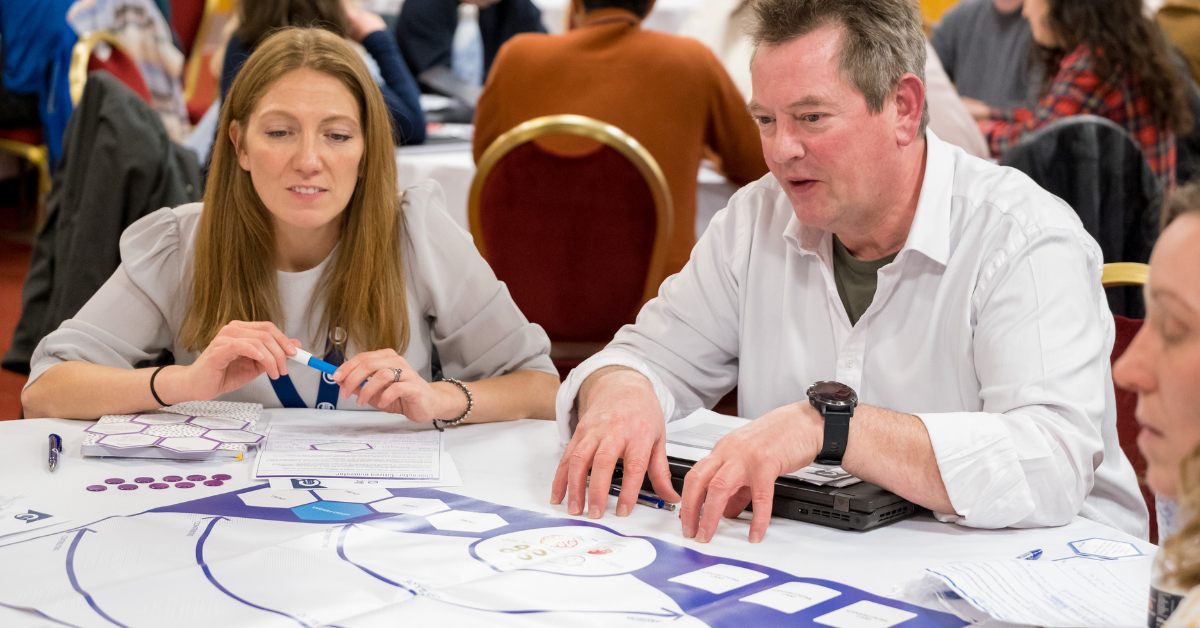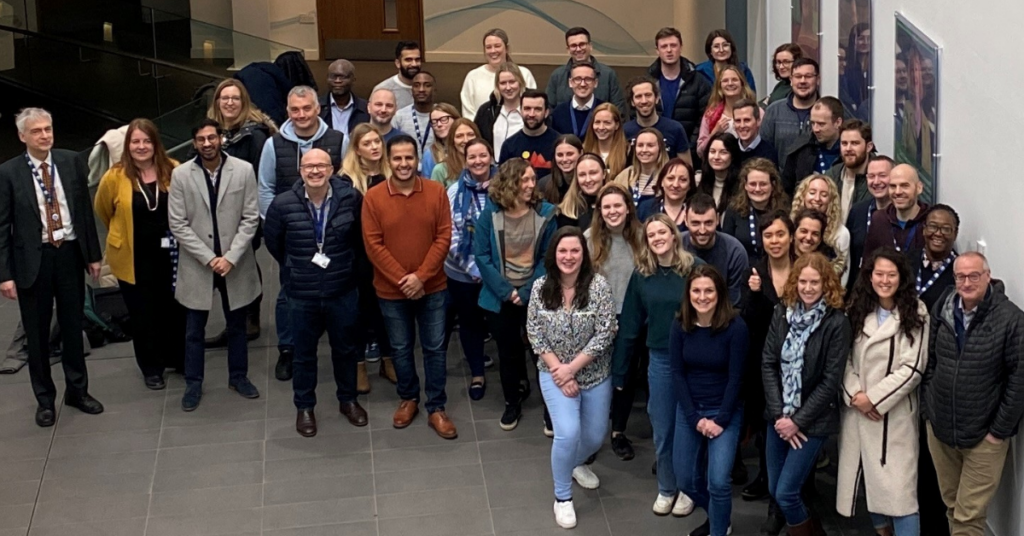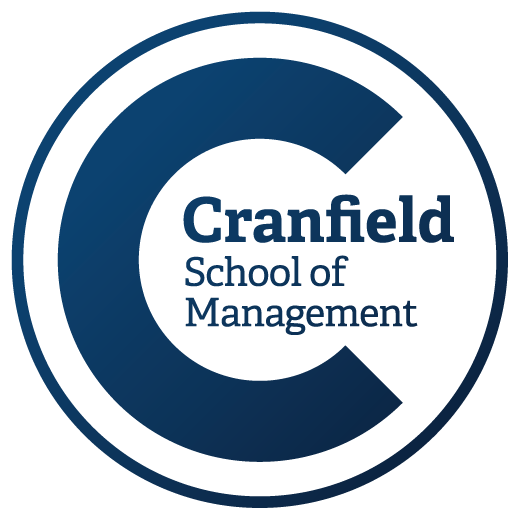Closing the skills gap: The Cranfield Sustainability MSc
25/04/2022

By Dr Rosina Watson and Dr Kenisha Garnett
Sustainability is a global topic that requires collective global action and mindset change. That’s why we’re so excited about our new, part-time Sustainability MSc and its potential to help forward-thinking businesses bridge the sustainability skills gap.
Our first cohort of 48 students has been with us for around a month now, and we’re already bowled over by their passion for the subject and their motivation to do good. A lot of companies are really geared up now to do something about sustainability, and it’s exciting to see this fantastic group of people come together ready and willing to champion the sustainability agenda in their respective organisations.
New for 2022
The Cranfield Master’s in Sustainability is a brand new course for 2022 which has been mapped against the Government’s Level 7 apprenticeship integrated degree standard, meaning it is eligible to be funded through organisations’ apprenticeship levy. Of the students in this first cohort, 40 are being levy funded by their organisations, and the others are either sponsored by organisations based overseas, or self-funding.
The course is designed to provide students with a mixture of technical and management skills. By bringing together the business knowledge and experience of academics in the School of Management and the technical expertise of faculty in our School of Water, Energy and the Environment, we hope to offer participants a dual-lens through which to view some of the most systemic sustainability problems, as well as different perspectives on how we can try to solve them.
Primarily aimed at people who are already working in organisations in a sustainability role, the course is accredited by the Institute of Environmental Management and Assessment (IEMA), meaning successful participants are awarded practitioner level membership up to chartered membership depending on their level of prior career experience.
Diversity of thinking
We’re delighted that the course has not only attracted a lot of interest so far, but is doing so across the board. We have an almost 50:50 ratio of women and men in this first cohort, and participants range in age from 22 into their late 50s. We have someone from the Caribbean who runs her own social enterprise producing sustainable clothing, and someone from the Middle East. We have a lot of people from the food and drink industry, several from furniture companies, a group of nine from BAE Systems, four individuals from the NHS and others from other non-profits and healthcare organisations like the RNLI, the Royal British Legion, and the British Red Cross. We also have individuals from consultancies, a legal firm, a real estate company, utilities, and construction – with quite a few financial services professionals interested in joining our next cohort later this year.
Some are very experienced in sustainability but are at an earlier stage of their career, while others are much more experienced in management generally but don’t know much about sustainability. Both have really got a lot to offer each other.
“I’m really enjoying the environment of being immersed in the campus, in the lifestyle, meeting new people, from all different backgrounds. We can get so preoccupied with our own sector, at times, but to hear from start-up companies and different perspectives and new ways of thinking, it’s really, really, really exciting.”
Laura Lake, Business Management Advisor, Bae Systems.
We’ve also got variety across the sustainability spectrum, with some people who know a lot about modern slavery and sustainable procurement but don’t know much about carbon footprinting, and others who know a lot about water, for example, but not much about carbon or biodiversity.
They’re all so enthusiastic. They have a real appetite for learning, and a shared desire to make a real difference in their organisations and beyond. Sustainability people tend to be very open in wanting to share what they know and do well in order to help other organisations to thrive because, in the end, we want the world to be better. You can really palpably feel that.
“We’re all here because we want to be here and have a certain purpose to meet which is under the common goal of sustainability, so it’s quite enlightening and it’s quite refreshing. It recharges the batteries for you to come away from here and do or become a better force for good.”
Richard Nayler, Sustainable Development Director, Hypnos Beds.
Doing things differently
This course is quite different from a lot of our traditional programmes, in that the cohort gets together formally for a three or four-day residential at the start of each year that we’re calling the Spring School, and then the rest is remote learning, with live teaching every other Friday from our studios and self-paced learning hosted on our virtual learning environment. We were very conscious that we wanted it to be accessible for people juggling childcare and other caring responsibilities, and for people to fit around their day job. We also didn’t want people to have to come to Cranfield too much, as we’re all conscious of our carbon footprint.
So far, the participants have spent the first Spring School getting to know each other and us, doing some work on their own personal leadership for sustainability, and playing our Sustainable Futures game which featured at COP26. Next year, they will get to see first-hand the work we’re doing on campus with tours of the solar farm and sewage treatment works, and a visit to our biomass boiler. They’ll also work on a consultancy project for a company struggling with an aspect of environmental innovation. Finally, we’ll be looking at their work-based applied thesis projects and working with them in small groups based around their shared areas of focus.
Closing the skills gap
Increasingly, organisations are being required by governments and their various stakeholders to think about the impact they are having on the environment, as well as the continued progression or trajectory of that impact and the consequences of burdening the environment with it over a long period of time. Companies are under pressure from all directions – from customers and employees who want them to be doing better on their behalf, from investors, from legislators and regulators, and from society generally.
The interest we’ve seen in this course, and the diversity of the cohort, show the real cross-cutting need for upskilling across lots of different sectors in response to this pressure. Companies recognise that they need people with certain knowledge and capabilities to deliver on some of the ambitious targets being set for and demanded of them, but there’s a massive skills gap. Head-hunters are desperate for board-level people who are sustainability-literate. Then you have people further down the organisation who have this huge passion for the subject but don’t know how to actually make that difference and breakthrough into those more senior levels. We hope that, by equipping them with the leadership and management angle on sustainability as well as the pure technical skills, we’ll be helping participants on the Cranfield Sustainability MSc on their way to becoming the sustainability-literate board directors of the future and making that difference that we all so badly want to see.

Categories & Tags:
Leave a comment on this post:
You might also like…
Keren Tuv: My Cranfield experience studying Renewable Energy
Hello, my name is Keren, I am from London, UK, and I am studying Renewable Energy MSc. My journey to discovering Cranfield University began when I first decided to return to academia to pursue ...
3D Metal Manufacturing in space: A look into the future
David Rico Sierra, Research Fellow in Additive Manufacturing, was recently involved in an exciting project to manufacture parts using 3D printers in space. Here he reflects on his time working with Airbus in Toulouse… ...
A Legacy of Courage: From India to Britain, Three Generations Find Their Home
My story begins with my grandfather, who plucked up the courage to travel aboard at the age of 22 and start a new life in the UK. I don’t think he would have thought that ...
Cranfield to JLR: mastering mechatronics for a dream career
My name is Jerin Tom, and in 2023 I graduated from Cranfield with an MSc in Automotive Mechatronics. Originally from India, I've always been fascinated by the world of automobiles. Why Cranfield and the ...
Bringing the vision of advanced air mobility closer to reality
Experts at Cranfield University led by Professor Antonios Tsourdos, Head of the Autonomous and Cyber-Physical Systems Centre, are part of the Air Mobility Ecosystem Consortium (AMEC), which aims to demonstrate the commercial and operational ...
Using grey literature in your research: A short guide
As you research and write your thesis, you might come across, or be looking for, ‘grey literature’. This is quite simply material that is either unpublished, or published but not in a commercial form. Types ...







